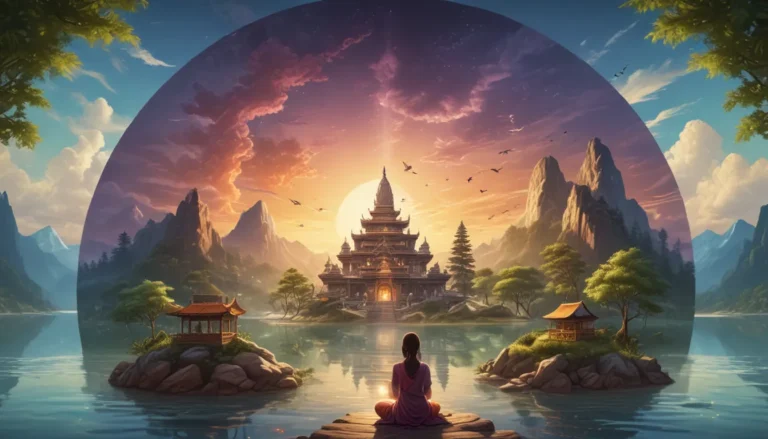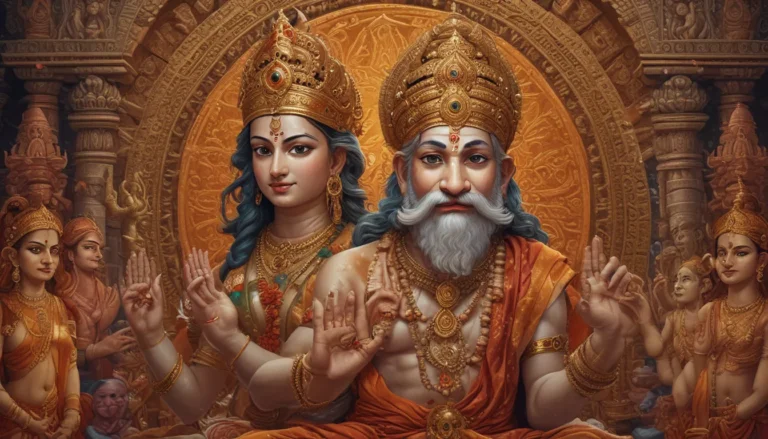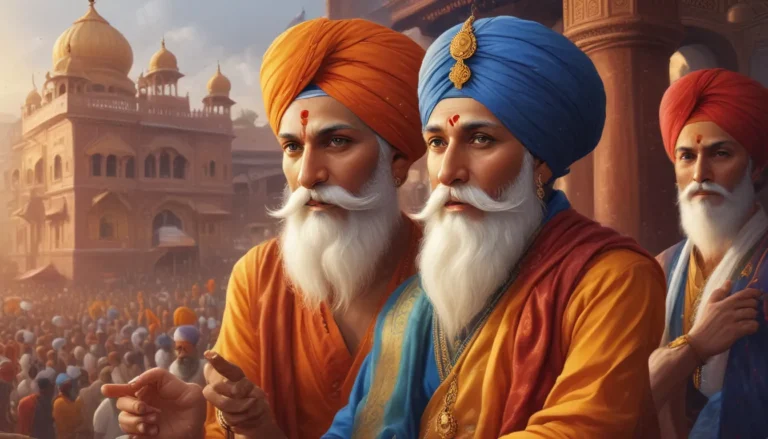The images in our articles may not match the content exactly. They are used to grab your attention, not to show the exact details in the text. The images complement the text but do not replace it.
Ancestor veneration is a time-honored tradition that spans across cultures and religions, carrying with it a sense of reverence and gratitude for those who came before us. From ancient civilizations to modern practices, this ritual has played a vital role in shaping beliefs and maintaining connections to our heritage. In this article, we will take a closer look at the fascinating world of ancestor veneration, highlighting its significance, rituals, and cultural impact. Join us on a journey to unravel the depths of this ancient practice and gain a deeper understanding of its importance in our lives.
Unveiling the Origins of Ancestor Veneration
The roots of ancestor veneration run deep, dating back thousands of years to civilizations such as the Egyptians, Chinese, Greeks, and Native Americans. This practice stems from the belief that our ancestors hold the power to influence our daily lives, acting as intermediaries between the living and the divine. By honoring and paying respect to our ancestors, we strengthen our sense of connection to our past and cultural heritage.
The Essence of Ancestor Veneration
Ancestor veneration is more than just a ritual; it is a profound way of showing reverence, respect, and gratitude for the sacrifices and contributions of those who came before us. It is about maintaining a link to our roots, understanding where we come from, and embracing the wisdom that has been passed down through generations.
Rituals and Ceremonies: The Heart of Ancestor Veneration
Central to ancestor veneration are the rituals and ceremonies that bring this practice to life. These rituals often involve offerings of food, drink, incense, and flowers, creating a sacred space for communication and homage to the departed. Whether through ancestral altars or shrines, these rituals provide a tangible way to connect with our ancestors and honor their memory.
Ancestor Veneration Across Cultures
While the core concept of ancestor veneration remains consistent, the specific rituals and customs associated with it vary widely across different cultures. From Asian societies like China, Japan, Korea, and Vietnam, to religious traditions such as Buddhism, Confucianism, and Shintoism, ancestor veneration takes on diverse forms, each reflecting the unique beliefs and practices of the culture.
The Significance of Ancestor Veneration
Ancestor veneration serves as a form of cultural preservation, passing down stories, knowledge, and traditions through generations. It fosters a sense of gratitude and humility, acknowledging the sacrifices and contributions of our ancestors. By honoring our lineage, we strengthen familial bonds and maintain a sense of continuity with the past.
Modern Influences on Ancestor Veneration
In today’s digital age, modern technology has also made its mark on ancestor veneration. Some cultures have embraced digital memorials and online platforms as new ways to honor and remember their ancestors. While the medium may have evolved, the essence of ancestor veneration remains rooted in reverence, respect, and gratitude.
Debunking Common Misconceptions
Contrary to popular belief, ancestor veneration is not about worshiping ancestors as gods. It is a practice of honoring and respecting their memory, acknowledging their role in shaping our lives. By understanding the true essence of ancestor veneration, we can appreciate the depth of connection it offers to our past and heritage.
Honoring Ancestors: A Source of Strength and Guidance
Ancestor veneration goes beyond a mere ritual; it is a source of strength, guidance, and wisdom that we can draw upon in our daily lives. By connecting with our ancestors, we tap into a rich well of experience and knowledge that can help us navigate life’s challenges and make meaningful decisions.
Conclusion: Embracing the Legacy of Ancestor Veneration
In conclusion, ancestor veneration is a practice that holds profound significance in various religious and cultural traditions. By honoring and remembering our ancestors, we deepen our connection to our roots and gain a deeper understanding of ourselves. This practice not only fosters respect and gratitude towards our ancestors but also provides a sense of continuity and belonging. Whether through rituals, offerings, or storytelling, ancestor veneration allows us to keep the memory of our ancestors alive and draw strength from their timeless wisdom.
Explore More: Delve into Ancestor Veneration and Beyond
Ancestor veneration is just one facet of the rich tapestry of human experiences and traditions that shape our world. Consider exploring other captivating topics, such as the memorial ceremonies in Hiroshima, the sacred practices observed during Ramadan, or the journey of self-discovery through genealogy. Each of these subjects offers a unique perspective on our shared history and heritage, inviting us to connect with the past and embrace the diversity of human culture.
FAQs: Your Ancestor Veneration Queries Answered
- Why is ancestor veneration important?
-
Ancestor veneration allows us to connect with our roots, show respect and gratitude towards our ancestors, and gain a deeper understanding of ourselves.
-
Is ancestor veneration limited to a specific religion?
-
No, ancestor veneration is practiced in various religions and cultural traditions worldwide, reflecting the universal significance of honoring the past.
-
What are some common ways to practice ancestor veneration?
-
Common practices include setting up ancestral altars, making offerings, holding rituals, recounting stories, and visiting ancestral gravesites as ways to honor and remember our ancestors.
-
Can anyone practice ancestor veneration?
-
Yes, anyone can practice ancestor veneration, regardless of their religious or cultural background. It is a personal and meaningful way to connect with our ancestors.
-
How can ancestor veneration benefit us?
- Ancestor veneration provides a sense of continuity, identity, and belonging, while offering guidance, strength, and wisdom from our ancestors to help us navigate life’s challenges.
In a world shaped by the legacy of those who came before us, ancestor veneration serves as a timeless practice that bridges the gap between past and present. As we honor our ancestors and learn from their wisdom, we carry forward their legacy and ensure that their influence continues to shape our lives for generations to come.






